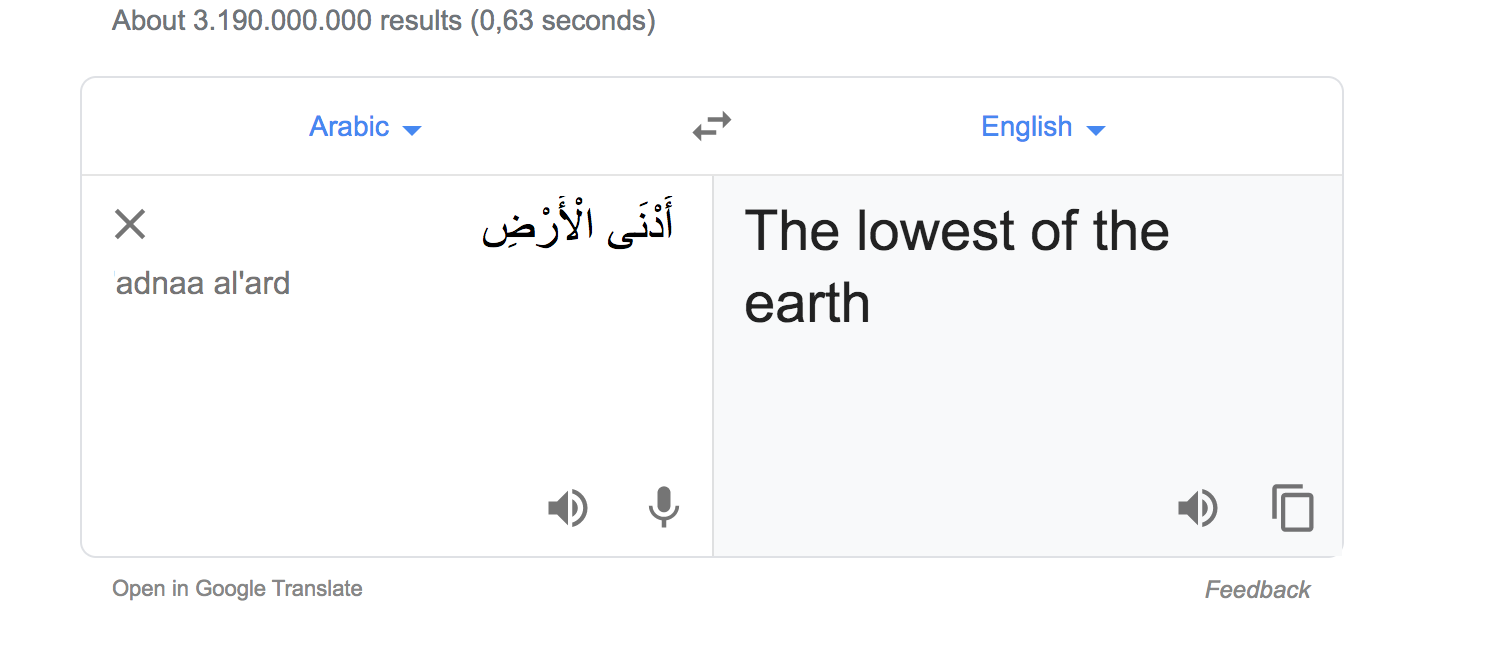The prophecy about the Romans winning in less than 10 years after losing to the Persians did take place.
The place where the Romans got defeated is not explicitly mentioned in the Qur'an or the hadiths. It is, however, mentioned in multiple books of tafsīr. The opinion of the unnamed person in the YouTube video (Undeniable Quranic Miracle — Rome's Defeat at Dead Sea Basin) is the person's own opinion. It is not reflected as such in credible Islamic sources. None of the classical or modern scholars that I have come across referred to the explanation of the word adna al-ard (Arabic: أَدْنَى الْأَرْضِ) to mean the Dead Sea or the lowest point on Earth.
At-Tabari (died 310 A.H.) in his tafsīr Jāmi' al-Bayān 18/456 (Arabic only) said about this incident:
قال: أدنى الأرض: الشام
NOTE. My own translation, so treat with care.
He said: The nearest land: Ash-Shām [Levant]
On page 18/452, At-Tabari said the same thing quoting Yahya ibn Ya'mar (the first scholar to introduce dots in the Qur'an):
فالتقيا بأذرعات وبصرى، وهي أدنى الشام إليكم
NOTE. My own translation, so treat with care.
They met in Athru'āt and Busrā, which are the closest [towns] in Ash-Shām to you.
At-Tabari was not the only scholar of exegesis that referred to adnā (Arabic: أدنى) as the nearest, not the lowest. Al-Baghawi (died 516 A.H.) in his tafsīr Ma'ālim at-Tanzīl 7/257 (Arabic only) said:
فالتقيا بأذرعات وبصرى، وهي أدنى الشام إلى أرض العرب والعجم
NOTE. My own translation, so treat with care.
They met in Athru'āt and Busrā, which are the closest [towns] in Ash-Shām to the lands of the Arabs and the Persians.
Al-Qurtubi (died 671 A.H.), too, in his tafsīr Al-Jāmi' li Ahkām al-Qur'ān 15/4 (Arabic only) said:
فذلك قوله تعالى: الم غُلِبَتِ الرُّومُ فِي أَدْنَى الْأَرْضِ يعني أرض الشام. عكرمة: بأذرعات، وهي ما بين بلاد العرب والشام. وقيل: إن قيصر كان بعث رجلا يدعى يحنس وبعث كسرى شهر بزان فالتقيا بأذرعات وبصرى وهي أدنى بلاد الشام إلى أرض العرب والعجم. مجاهد: بالجزيرة، وهو موضع بين العراق والشام. مقاتل: بالأردن وفلسطين. و أدنى معناه أقرب. قال ابن عطية: فإن كانت الواقعة بأذرعات فهي من أدنى الأرض بالقياس إلى مكة
NOTE. My own translation, so treat with care.
This is His saying, may He be Exalted: "Alif, Lam, Meem. The Byzantines have been defeated in the nearest land", which means the lands of Ash-Shām. 'Ikrimah said: "In Athru'āt, which is between the lands of the Arabs and the lands of Ash-Shām." It was also said: "Caesar had sent a man named Johannes, and Khosrow had sent a man named Shahrbaraz. They met in Athru'āt and Busrā, which are the nearest towns in the land of Ash-Shām to the lands of the Arabs and the Persians." Mujāhid said: "In Al-Jazīra, which is a place between Iraq and Ash-Shām." Muqātil said: "In Jordan and Palestine. And adna (Arabic: أدنى) means nearest." Ibn 'Atiyyah said: If the battle took place in Athru'āt, this is the closest land to Mecca by distance."
Ibn Kathir (died 774 A.H.) in his tafsīr Tafsīr al-Qur'ān al-'Adhīm 6/269 (Arabic only) said:
وبعث كسرى شهريراز فالتقيا بأذرعات وبصرى، وهي أدنى الشام إليكم
NOTE. My own translation, so treat with care.
And Khosrow sent Shahrbaraz, and they met in Athru'āt and Busrā, which is the closest of Ash-Shām to you.
Even modern scholars of exegesis, like Ibn 'Āshūr (died 1394 A.H.), had the same view as demonstrated in his tafsīr At-Tahrīr wa at-Tanwīr 22/43 (Arabic only):
أي في أدنى أرضهم، أو أدنى أرض الله. وحذف متعلق أدنى لظهور أن تقديره: من أرضكم، أي أقرب بلاد الروم من أرض العرب
NOTE. My own translation, so treat with care.
That is, in the adna (Arabic: أدنى) of their lands, or in the adna of Allah's land. And the elimination of the possessive in relation to adna is due to its apparent assumption: to your land, i.e., the closest place in the lands of the Byzantines [who were in Ash-Shām] to the lands of the Arabs.
I have not come across any scholarly opinion that referred to adna al-ard (Arabic: أَدْنَى الْأَرْضِ) as the lowest point on Earth.

